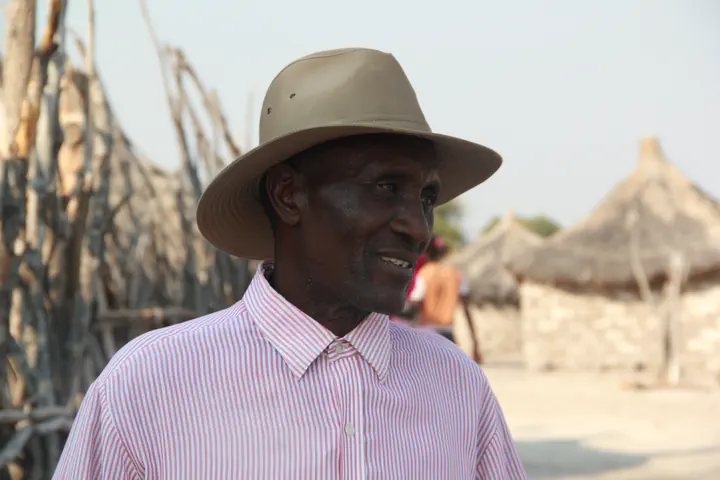Local leaders in Namibia
 Traditional leader, Ohangwena Region Namibia
Traditional leader, Ohangwena Region Namibia
Leadership structures play a key role for successful self-governance of natural resources. Leaders are responsible for drafting and enforcing rules concerning resource management and may strongly influence behavior of other resource users. The quality of leadership is also crucial for the success of decentralization reforms that have been initiated across the world in the last two decades and that are often accompanied with the creation of elected councils on the lowest level of governance responsible for managing public goods and natural resources. Decentralization and democratization reforms may improve local public good provision, but they are also prone to power abuse, nepotism, arbitrary rule enforcement, and other forms of misbehavior of leaders that may undermine trust and cooperation among community members and impede sustainable resource management.
This study provides experimental evidence from 32 communities in Northern Namibia on the nepotistic use of punishment and procedural fairness of local leaders. In the study area, decentralization reforms have created a coexistence of democratically legitimized leaders responsible for water management and traditional authorities, who inherit their position and have the power to allocate land to resource users. In addition, the project investigates whether leadership strategies and leaders’ personality traits have explanatory power for the real-life performance of leaders and whether local villagers’ perceptions about resource availability have an impact on the election of different types of leaders. The results of this project contribute to the broad strands of literature on leadership, decentralization policies and common-pool resource management.
The study was carried out in the Ohangwena region in northern Namibia in summer 2014. In this area, the majority of inhabitants, about 80% of participants, are pastoralists who strongly depend on the availability of grazing and water resources. Access to and the management of these resources is regulated both by traditional and democratically elected leaders. The study employed three local research assistants who are native Oukwwanyama, born and raised in the study area, but currently enrolled at the University of Namibia (UNAM) in Windhoek, the capital city of Namibia. We use a combination of lab-in-the field experiments and surveys to answer our research questions:
Is ’nepotism’ more prevalent under democratically legitimized or traditional forms of leadership? Do democratically elected leaders place procedural justice before self-privileges to a larger extent than traditional leaders?

